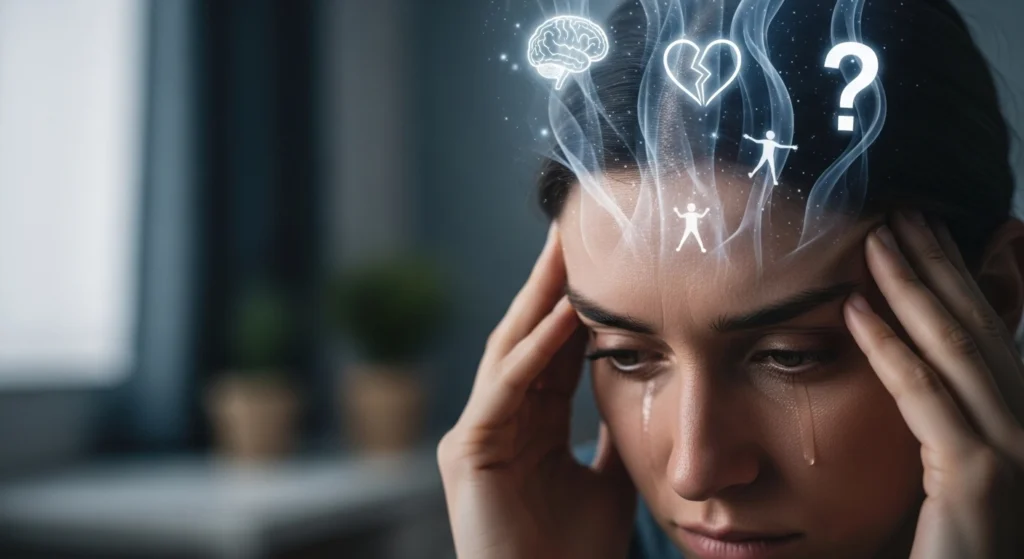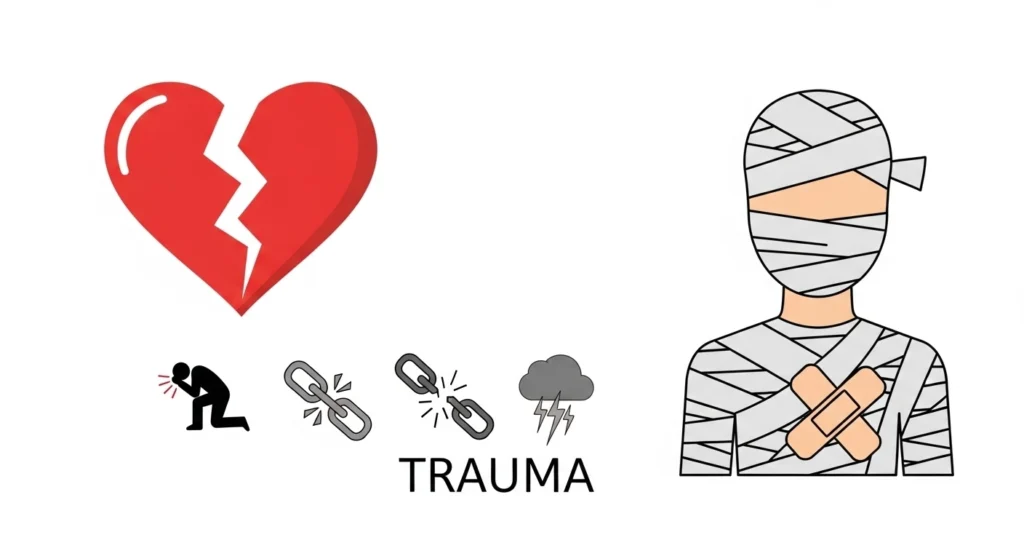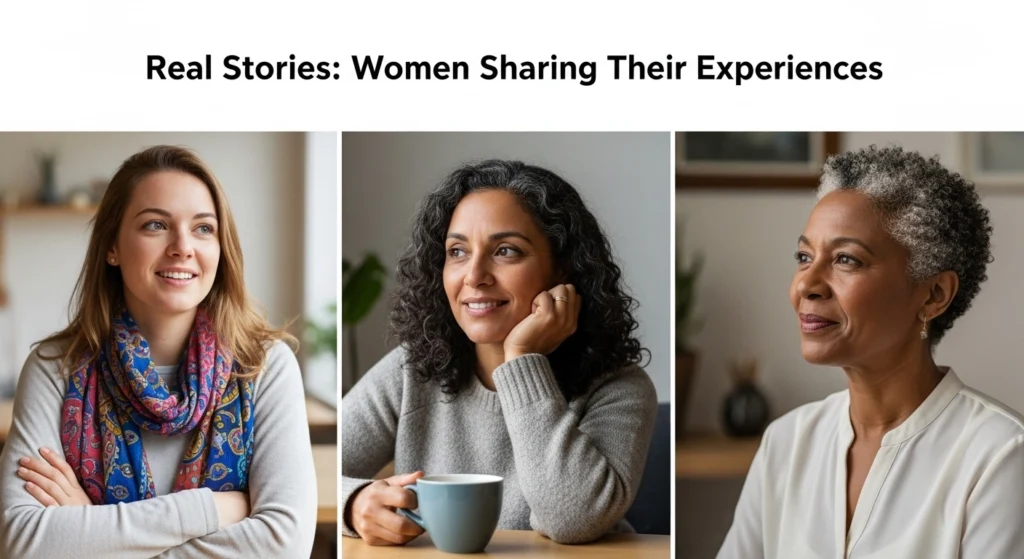Many people wonder why some women choose to have more than one partner. Some think it’s wrong, while others are just curious. But the truth is, every woman is different. Some want love, some want fun, and some just want to feel free. To understand this, we have to look at how people think, feel, and connect in relationships.
In my work with relationship topics, I’ve talked to many women about this. Some said having more than one partner helped them understand what they want in life. Others said it gave them more confidence. It’s not always about wanting attention or being unhappy. Sometimes, it’s about making choices that feel right for them.
Experts in psychology look at things like how people form close bonds, how they feel about sex, and what kind of relationships they want. Big words like “attachment,” “freedom,” and “trust” are often part of this. Many times, society is harder on women than men when it comes to having more partners. That’s why it’s important to learn more and not just believe old ideas or unfair judgments.

Understanding Female Sexual Behavior Through Psychology
Biological vs. Psychological Drivers
Some people believe women have many partners because of how the body works. A long time ago, women may have had more than one partner to help have strong, healthy babies. This idea comes from something called evolutionary psychology. Our brains still carry some of these old ways of thinking, even today. This shows that nature may play a small part in why women make these choices.
But there’s more to it than just biology. How a woman feels, thinks, and what she has gone through also matters a lot. Some women may want love, others want freedom, and some just want to feel in control of their lives. In my own work with young women, many told me they felt stronger when they made their own choices in love and dating. That comes from their thoughts and feelings—not just from the body.
Role of Attachment Styles and Early Experiences
The way a woman loves and connects with others can start in childhood. If she felt safe and loved as a child, she may want one strong, close relationship. But if her parents were not loving or were hard to trust, she may have trouble feeling close to just one person. She may look for love in many places.
This is called attachment style, and it’s something I learned about in psychology class. It helped me understand why people act differently in relationships. Some women who didn’t feel safe when they were little might not trust one person to meet all their needs. So, they may choose to be with more than one person. This isn’t bad—it’s just how their early life shaped them.
Scientists also look at how the brain works with love and sex. For example, a brain chemical called oxytocin makes people feel close after sex. But not everyone feels this in the same way. That’s why it’s important to learn how feelings, the brain, and life experiences all come together.
Correlation Between Number of Partners and Marital Satisfaction
What Research Says About Relationship Outcomes
Some studies say that women who have had fewer partners before marriage are often happier in their marriage. For example, women who only had one partner before getting married are more likely to say they are “very happy.” Women who had many partners sometimes say they feel less happy in marriage. But this doesn’t mean that having more partners always leads to problems. Every person and every marriage is different.
When I learned this in my relationship class, it made me think a lot. Some people feel judged by this research, but it’s not about right or wrong. These studies just show what happens for many people, not everyone. It’s still important to understand how past choices can affect your future.
Soul Matcher & NIH Study Findings
The Soul Matcher study showed that women with only one partner in their life were the happiest in marriage. Women who had 6 to 10 partners were less likely to say they were happy. Another study from the National Institutes of Health (NIH) found that having many partners, especially with unsafe sex, can lead to more stress, worry, and problems with trust.
When I looked at these studies, I saw how helpful it is to learn from them. Knowing the facts can help people make better choices about love and marriage. Everyone’s story is different, but learning about this can guide you in the right direction.
Is There a Psychological Cost? Mental Health & Emotional Well-being

Anxiety, Depression, and Partner Count
Some studies show that having many sex partners can sometimes be linked to feeling sad, worried, or stressed. For example, a study by the National Institutes of Health (NIH) found that women with many partners were more likely to feel anxious or depressed later on. This doesn’t mean it always happens, but it can happen if the person doesn’t feel safe, cared for, or understood. Some people might feel confused or empty after having many short relationships.
I’ve met young women who felt strong and happy at first when they had more than one partner. But later, a few told me they felt tired or unsure about their choices. It wasn’t always about sex—it was about how they felt deep down. That’s why it’s important to think about both your emotions and your health, not just your choices.
The Role of Shame, Judgment, and Self-Perception
Sometimes, people judge women who have more than one partner. This can lead to feelings of shame, guilt, or feeling bad about yourself. Even if a woman makes her own choices, hearing bad things from others can hurt her feelings. Studies on mental health and promiscuity show that how others treat you can affect how you see yourself.
One woman I spoke with told me she felt okay with her choices—until people started saying mean things. That made her feel small, even though she didn’t do anything wrong. This shows why it’s so important to be kind to yourself and have people around you who understand and support you. What you think about yourself matters more than what others say.
Pair Bonding and Its Disruption: Myth or Fact?
The “Pair-Bonding” Hypothesis Explained
Pair bonding means feeling close to someone after sex. Scientists say this happens because the brain releases a special chemical called oxytocin. This chemical makes people feel love, care, and trust. Some experts think that having many partners can make it harder to feel close later on. That’s because the bond may feel weaker over time if it’s formed and broken too often.
When I first learned about this, I spoke to women who had different stories. Some said they didn’t feel as connected in new relationships after having many partners. Others said they still felt close when they felt respected and safe. So, it’s not the same for everyone. It depends on the person and how they feel inside.
Does High Partner Count Affect Emotional Bonding?
Some research shows that people with many partners may find it harder to trust or feel close in new relationships. One study found that having lots of past partners could make emotional bonding more difficult. But this doesn’t mean people can’t feel love again—it just might take more time and care.
When I helped in a group chat about relationships, I heard women say things like, “It’s hard to feel anything real now.” Others said they didn’t trust people like they used to. This shows that our past relationships can shape how we feel in the future. Everyone is different, and what matters most is how we feel about ourselves and what we need.
Societal Views on Women with Multiple Partners
Cultural Norms and the Double Standard
In many places around the world, women are judged more harshly than men when it comes to sex. If a man has many partners, he might be praised. But if a woman does the same, she might be called names. This is called a double standard, and it’s unfair. These rules come from cultural beliefs that have been around for a long time.
When I talked with women during a group session, many shared how this made them feel small or embarrassed. One woman said, “People act like I’m doing something wrong, even though I’m just living my life.” This shows how strong public perception can be—and how it often treats women and men differently for the same choices.
Internalized Shame and Social Judgment
Because of this judgment, some women start to feel ashamed even if they’re not doing anything wrong. This is called internalized shame. It happens when someone starts to believe the bad things others say about them. A woman might feel guilty, nervous, or even hide her true self to avoid being judged.
I remember one woman who said she felt “dirty” after people in her family made rude comments about her dating life. She said she began to question her own worth, even though she wasn’t hurting anyone. These feelings can hurt a person’s self-esteem and mental health. That’s why it’s important to talk about these topics honestly and without shame. No one should feel bad for making their own choices.
Personal Factors That Influence Partner Count

Personality, Trauma, and Sexual Interest
Every woman is different. Some women have more partners because of their personality. They might feel okay having sex without being in love. This is called sociosexuality. Others may have gone through something hard, like sexual trauma, which can change how they feel about love and closeness. Sometimes, having many partners is a way to feel strong or safe.
One woman I met told me she didn’t want to get too close to anyone. She had a bad experience in the past, and keeping things casual made her feel more in control. Her story showed me that sometimes the reason for someone’s choices comes from pain, not just desire.
Age, Education, and Relationship History
Things like age, schooling, and past relationships also make a big difference. Younger women may want to explore and learn. Women who go to college or live in open-minded places may feel more free to choose what they want. Some women had hard breakups and don’t want to settle down quickly again.
I’ve talked to many women with different stories. One woman said she had two long relationships that didn’t work out, so she chose to date more freely. Another woman said that after turning 30, she felt more confident and stopped feeling bad about her choices. These stories show that life experience helps shape what a woman wants and needs in her love life.
Breaking the Myths About Women with Multiple Partners
Stereotypes vs. Scientific Reality
Some people think that if a woman has many partners, she must be confused, sad, or not serious. But this is not always true. Studies show that women with many partners can still be happy, smart, and strong. Just because a woman chooses to have more partners doesn’t mean something is wrong with her. What matters most is how she feels about her own choices.
I once spoke to a woman who said, “People don’t really know me—they just guess.” She was calm and sure of herself, even when others judged her. This showed me how wrong these myths can be. A woman’s value is not based on how many people she has dated or loved.
What Media and Society Often Get Wrong
Movies and social media often show women with many partners in a bad way. They may look wild, sad, or lost. But in real life, many women with active dating lives are kind, healthy, and happy. The media doesn’t always tell the full story.
I saw a TV show once where a woman who dated a lot was always lonely in the end. But in my own life, I’ve met women who had many partners and were doing just fine. They were strong and proud of who they are. This shows us that what we see in shows isn’t always real life. Being free to make your own choices is not bad—it’s a sign of confidence.
Real Stories: Women Sharing Their Experiences

Why They Chose Multiple Partners
Every woman has her own reason for choosing more than one partner. Some do it for fun, others for learning, and some just want to feel free. On Reddit and Quora, many women talk about how they enjoy the freedom of not being tied down. One woman wrote, “I like getting to know different people. I learn a little more about myself each time.”
I’ve heard similar stories in support groups I’ve joined. A woman once said, “I wanted to feel loved, and different people gave me different kinds of love.” Her honesty showed that choices like this come from real feelings—not just from what people assume.
Emotional and Relationship Lessons
Many women say that having multiple partners helped them understand what they want in a relationship. Some learned how to set boundaries. Others found out what makes them feel safe, cared for, or respected. One woman shared online, “After dating many people, I finally knew what I needed emotionally—not just what I wanted.”
From my own talks with women, I noticed that many didn’t regret their choices. They said they grew stronger, more aware, and more confident. These stories remind us that each woman’s journey is personal. It’s not always easy, but the lessons they learn often help them love themselves more.
FAQs (Frequently Asked Questions)
Can a woman love more than one man at once?
Yes, she can. Some women feel love for more than one person at the same time. This is called polyamory. In these relationships, everyone knows about each other and agrees. Love can come in different ways, and for some people, more than one partner feels right.
Does having many partners make bonding harder?
It can for some people. There’s something called pair bonding, which is how we get close to someone after sex. Some say having many partners might make this bonding harder. But it doesn’t happen to everyone. Some women still form deep bonds, even with a lot of past partners.
Is having many partners caused by trauma?
Sometimes it is, but not always. A few women have had bad past experiences, like trauma. That can change how they feel about sex and love. But other women just enjoy dating and feel free with their choices. Having many partners doesn’t always mean something is wrong.
What do you call it when a woman has more than one boyfriend?
It’s called polyamory if everyone knows and agrees. Some people also call it open relationships or ethical non-monogamy. That means the woman is honest and respectful with her partners. It’s not cheating because there are clear rules.
Are women made to only love one person?
Not always. Some women like having just one partner. Others don’t. Studies say some women are okay with more than one partner over time. It depends on how they feel, not on what’s “normal.”
Conclusion
All women are different. Some like to have one partner, and some feel happy with more than one. It doesn’t mean one is right and the other is wrong. It just means people are not the same. I’ve met women who were careful with love and only had one partner. I’ve also met women who dated more. Both kinds of women were kind, smart, and strong. Everyone has their own story—and that’s okay.
Sometimes, people judge others without knowing their full story. But it’s better to listen and try to understand. A woman may have many partners for many reasons—freedom, love, or healing. One woman told me, “I chose this because it helped me feel like myself again.” That moment helped me see how important kindness is. Instead of judging someone’s choices, we can show care and respect. Everyone wants to feel safe, seen, and accepted.
